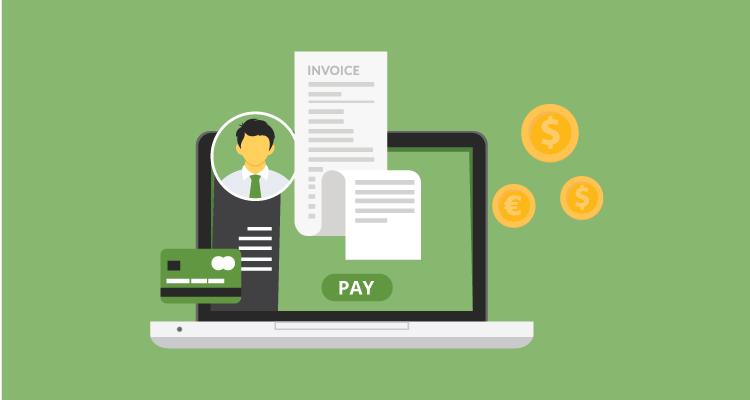Invoicing is a necessary task for freelancers. After all, there’s no billing department that’s going to hand you a paycheck. It’s your responsibility to get paid. Creating an invoice using Microsoft Word or a template you found online can get the job done.They don’t offer the functions and features that you need to succeed as a freelancer. That’s why you should be looking for these best invoicing functionality and features when selecting invoicing software.
Table of Contents
ToggleInvoice Management
Every freelancer wants to be compensated for their services. Of course, this involves incredible work and payment requests.
Obviously, this is where invoicing enters the game. Unfortunately, when it comes to getting paid, freelancers are often at the bottom of the pile. In fact, one study found that 60 percent of small business invoices are paid late. And, if you haven’t been paid within 90 days, only 18 percent of those invoices will get paid.
The main reason for this is freelancers don’t have the resources to chase down late payments. In other words, we don’t have an accounting department whose job it is to create and manage invoices. It’s something that we have to do on own — which means that it’s taking away time that could be spent making money.
The good news is that there are numerous accounting solutions that can make getting made much easier. As a freelancer, you should be focusing on a solution that allows you to create and send invoices in just a couple of minutes. It should also let you track these invoices and accept a variety of payments.
For example, Due allows you to get paid via PayPal, Stripe, credit card, and ACH. Due can even acpey cyrocurrecnies like bitcoin. This means that we can accept payments quickly and cheaply.
You can even accept cross-border payments if you have global clients at a low 2.8 percent transaction rate.
Additionally, Due comes with some powerful automation tools. This way your clients can receive incoming payment reminder and late payment notices without you lifting a finger. And, if you have long-term clients, you can use Due to set-up recurring payments.
Mobile Invoicing
Mobile invoicing basically puts your office in your back pocket. This means you can create and manage your invoices directly from your phone when heading to the coffee shop or waiting to catch a flight.
Besides saving you time, mobile invoicing eliminate costs for paper, postage, and ink. That also means it’s better for the environment. And, as if that wasn’t enough, this allows you to keep all of your client information in one location while streamlining your billing.
Even if you found a tool or software to manage your invoices, it should also come equipped with a mobile invoicing feature. We’re moving towards a more digital and mobile world, so it’s best to jump on the bandwagon sooner than later.
Time Tracking
“One of Due.com’s online invoicing platform’s best features is its time-tracking functionality that offers a freelancer” a real-time “way to track how much time is spent on every projects,” writes Angela Ruth.
If you’re charging by the hour, then you should be using a time tracking tool. As Angela explains, “With some projects set on hourly rates, it becomes especially important to know just how much time is spent on each project. You will even need to look at how you will deal with distractions, so that the client is billed accurately and the business owner does not miss out on the money they have actually earned.”
Many business owners often end up underestimating projects and missing out on money that they could have earned on current and future assignments.” Time tracking also helps “clients to get a correct assessment of how long projects take so that they can correctly budget for the work.”
Time tracking can also keep a freelancer productive since it notifies you on how much time you waste during a day. If you’re aware of this information, you can change your habits so that you’re getting the most out of your time.
Accountant Access
Invoicing software is a real life saver as a freelancer. But, there will be times when you’ll need to consult with a specialist, like during tax season.
Working with a CPA or bookkeeper can help you get the most out of every dollar you earn. For instance, they can spot tax deductions that you were never aware of.
To make life easier for both parties, grant access to your books. Since most cloud-based options offer this feature as a standard, this shouldn’t be too big of a deal. But, just make sure that you trust them completely with your sensitive data.
Depending on how you work with your accountant, you’ll want them to take a peek into your books once every month or quarter. They can help you plan your upcoming work and keep you in positive cash flow territory.
Final Words of Advice
As a freelancer, there are also some features and functionality that you don’t need. For instance, you don’t need payroll since you’re a solopreneur.
You also don’t need to be concerned with special reporting tools. As long as it covers the basic financial reports, income statement, balance sheet, and cash flow statement, you’ll be just fine. All those other detailed reports will just bog you down.
Finally, don’t be shy to give the invoicing software a spin. Most options are free or offer a trial. This way you can make sure that it has all of the bells and whistles you need for your specific freelancer business.












